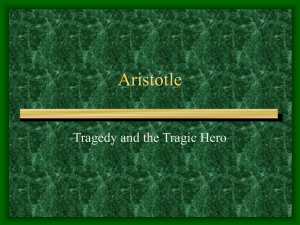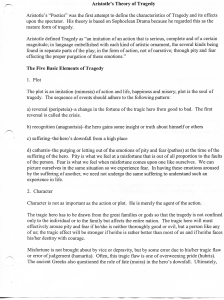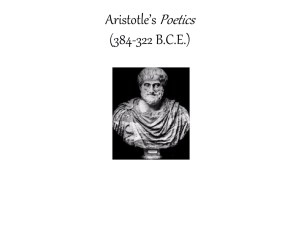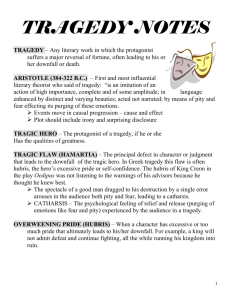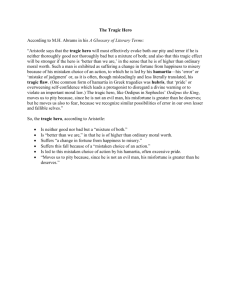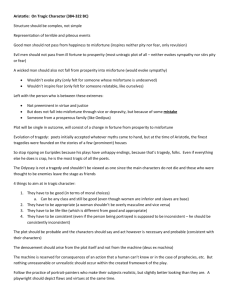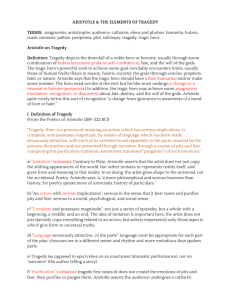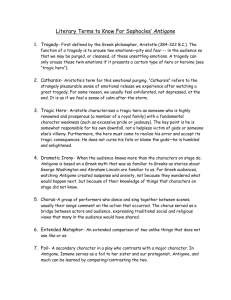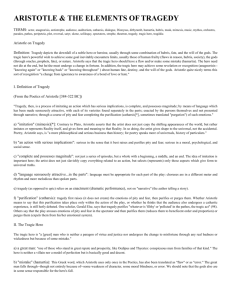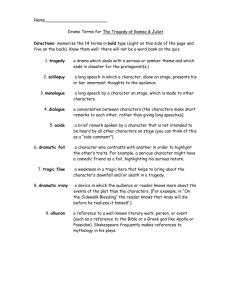Aristotle's Theory of Tragedy: Elements & Analysis
advertisement
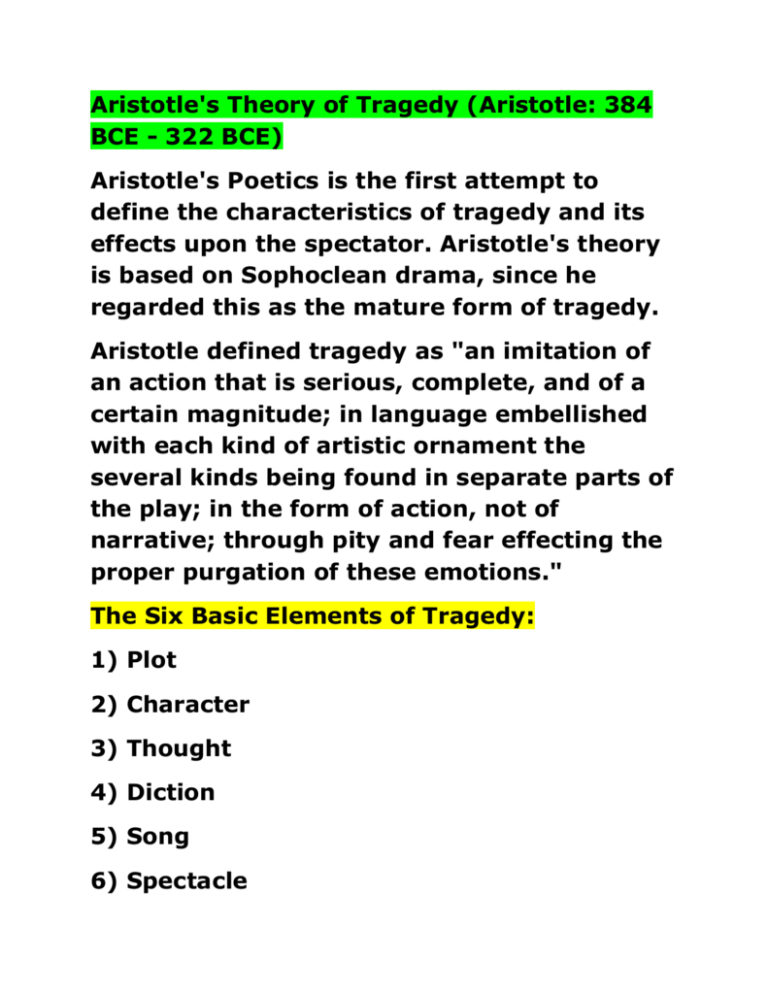
Aristotle's Theory of Tragedy (Aristotle: 384 BCE - 322 BCE) Aristotle's Poetics is the first attempt to define the characteristics of tragedy and its effects upon the spectator. Aristotle's theory is based on Sophoclean drama, since he regarded this as the mature form of tragedy. Aristotle defined tragedy as "an imitation of an action that is serious, complete, and of a certain magnitude; in language embellished with each kind of artistic ornament the several kinds being found in separate parts of the play; in the form of action, not of narrative; through pity and fear effecting the proper purgation of these emotions." The Six Basic Elements of Tragedy: 1) Plot 2) Character 3) Thought 4) Diction 5) Song 6) Spectacle 1) Plot: The plot is an imitation (mimesis) of action and life, happiness and misery; plot is the soul of tragedy In the play, the sequence of events should adhere to the following pattern: a) reversal: (peripeteia) a change in the fortunes of the tragic heor from good to bad the first reversal is the crisis b) recognition: (anagnorisis) the hero gains some insight or truth about himself/ herself or others c) suffering: the hero's downfall-suffering is beyond what is deserved d) catharsis: the purging or letting out of the emotions of pity and fear at the time of the suffering of the hero. Pity is what we feel at a misfortune that is out of all proportion to the faults of the person. Fear is what we feel when misfortune comes upon someone like ourselves. We can picture ourselves in the same situation; therefore we feel fear. In having this pity and fear aroused by suffering of another we need not undergo the same suffering to understand such an experience in life. 2) Character: Character is not as important as the action or plot. It is merely the agent of the action. The Tragic Hero: The tragic hero has to be drawn from the great families or gods. This ensures that that the tragedy is not just confined to the individual or to the family. It now affects the entire nation.. The tragic hero will more effectively arouse pity and fear if he / she is not thoroughly evil, but a person like any of us, though the tragic effect will be stronger if he / she is rather better than most of us and if he / she faces destiny with courage. 3) Thought: Misfortunes if not brought about by vice or depravity, but by some error due to a tragic flaw or error of judgment (hamartia). Often this tragic flaw was seen by the Greeks to be one of excessive pride (hubris). They also questioned the extent of the role of fate (moira) in the hero's downfall. The punishment for the hero must be considered just - hence the term "nemesis" which means just punishment. This concerns itself with the serious theme or appropriateness of the message. 4) Diction: The choice of words is vital to the dramatic production. 5) Song: Music and lyrical poetry were a major part of the spectacle (chorus). 6) Spectacle: There are sections in the play of outstanding horror intended to arouse pity and fear in the audience (pathos). However, violence is never presented on stage. The pageantry is created by costume, props, masks, voice, etc. The Role of the Chorus 1. to serve as the common person's reactions 2. to affirm the religious and political outlook of society 3. to comment on the action by creating a psychological and emotional background to the action 4. to introduce and question new characters 5. to give information 6. to point out significant events 7. to separate episodes General Information of Interest actors were respected as servants of Dionysus and were exempt from military service men performed women's roles usually there were only three actors per production the use of masks allowed for the use of a limited number of actors in numerous roles Re: Oedipus Rex by Sophocles Oedipus Rex is a religious play dedicated to the god, Dionysus, the god of wine and fertility. The festival of Dionysus is usually a spring festival. Before the serious, morality play, sometimes there was a play with an actor dressed up as a sacrificial goat (satyr). This play would mock the seriousness of the following play hence the term "satire."
